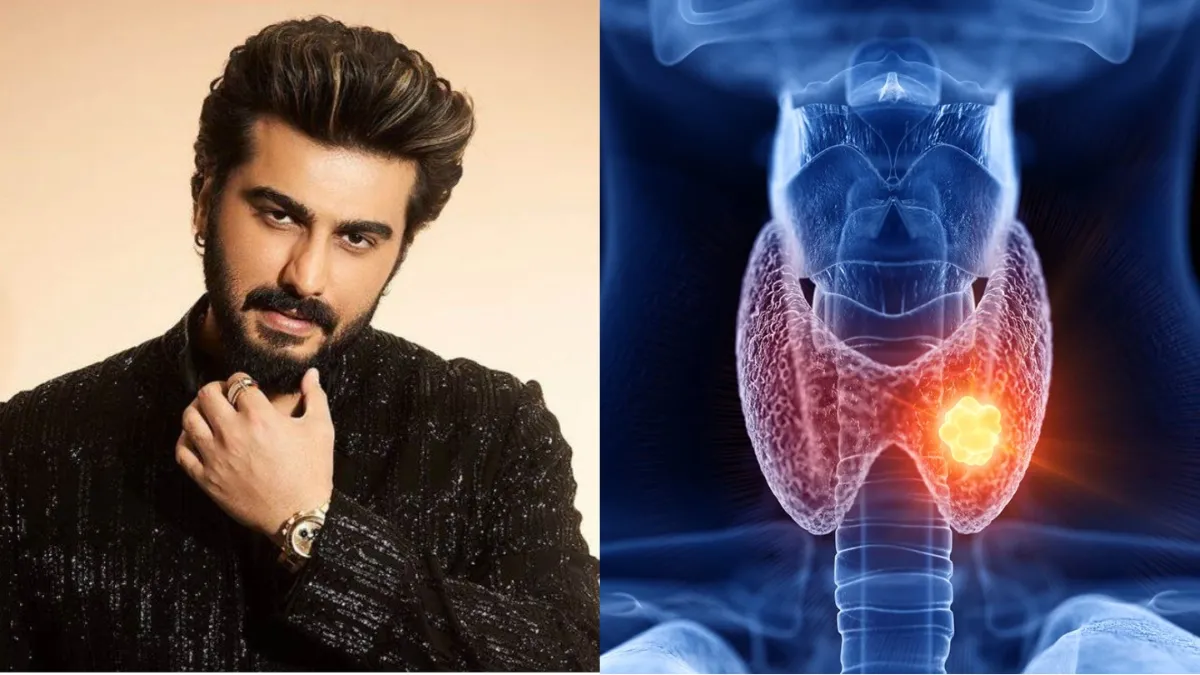Bollywood actor Arjun Kapoor, who is now in the spotlight for his performance in his latest film Singham Again, has stated that he suffers from minor depression and Hasimoto's illness. The actor confessed that he has struggled with weight concerns as a result of this ailment. He mentioned that his mother and sister, Anshula Kapoor, suffer from the same auto-immune illness.
"I haven’t always opened up about it, but I also have Hashimoto’s disease, which is an extension of thyroid. It's almost like I can take a flight and gain weight because the body goes in distress," Arjun told The Hollywood Reporter. Let us know all about this autoimmune disorder, from its causes to preventive measures:
What is Hashimoto's Disease?
Hashimoto's disease is an autoimmune illness of the thyroid gland. The thyroid is a small, butterfly-shaped gland in your neck that regulates several key bodily activities, including metabolism (how your body uses energy). Hashimoto's disease occurs when the immune system erroneously assaults the thyroid gland, leading it to become inflamed and less functional. Over time, this might result in an underactive thyroid, sometimes known as hypothyroidism.
Causes of Hashimoto's disease
Hashimoto's disease is an autoimmune disorder in which your body's immune system destroys your cells and organs. Normally, your immune system defends your body from harmful outside invaders such as bacteria and viruses. However, in Hashimoto's disease, the following occurs.
- Your immune system produces antibodies that target thyroid tissue for unexplained reasons.
- Large amounts of white blood cells (particularly, lymphocytes) accumulate in your thyroid.
- This buildup causes inflammation (thyroiditis) and harms the thyroid.
- Over time, damage to your thyroid can prevent it from producing enough thyroid hormone for your body.
Symptoms of Hashimoto's disease
Some persons with Hashimoto's disease may experience no symptoms at first. As the illness continues, your thyroid gland may become enlarged (known as goiter). Goiters are a common early indication of Hashimoto's disease. It should not hurt, although it may cause a sensation of fullness in your lower neck. It might make the front of your neck appear enlarged.
If Hashimoto's disease develops to hypothyroidism, the following symptoms may develop over time:
- Tiredness (fatigue), lethargy, and excessive sleep.
- Mild weight gain.
- Constipation.
- Dry skin.
- Feel chilled.
- A lower-than-normal heart rate (bradycardia).
- Joint stiffness and muscle soreness.
- Dry, brittle hair; sluggish hair growth or hair loss.
- Low or gloomy mood.
- Puffy eyes and face.
- Memory issues or difficulties concentrating.
- Periods can be heavy or irregular.
- Reduced libido.
- Female or male infertility.
Treatment of Hashimoto's disease
The treatment for Hashimoto's disease is determined by whether your thyroid has been damaged sufficiently to induce hypothyroidism. If you do not have hypothyroidism or have a minor case, your doctor may not prescribe medication and instead monitor your symptoms and thyroid hormone levels.
If you have hypothyroidism, you will be prescribed medication in the form of a pill, gel capsule, or liquid to ingest. This medication, called levothyroxine, is a chemical or synthetic version of the natural thyroid hormone T-4 that is intended to restore normal metabolism.
- Levothyroxine is available in various strengths. The exact dose prescribed by your doctor will depend on a variety of factors, including:
- Variables to consider include age, weight, and severity of hypothyroidism.
- Other health difficulties.
- Other drugs that could interact with synthetic thyroid hormones
Six to eight weeks after you begin therapy, your doctor will perform a TSH test to check your thyroid function and verify you are receiving the proper dose. Once the correct dose has been determined, the test will be performed in six months and again in a year. There is no cure for Hashimoto's, therefore you will need to take this prescription for the rest of your life.
(This article is for general information, please consult a doctor before adopting any remedy)

